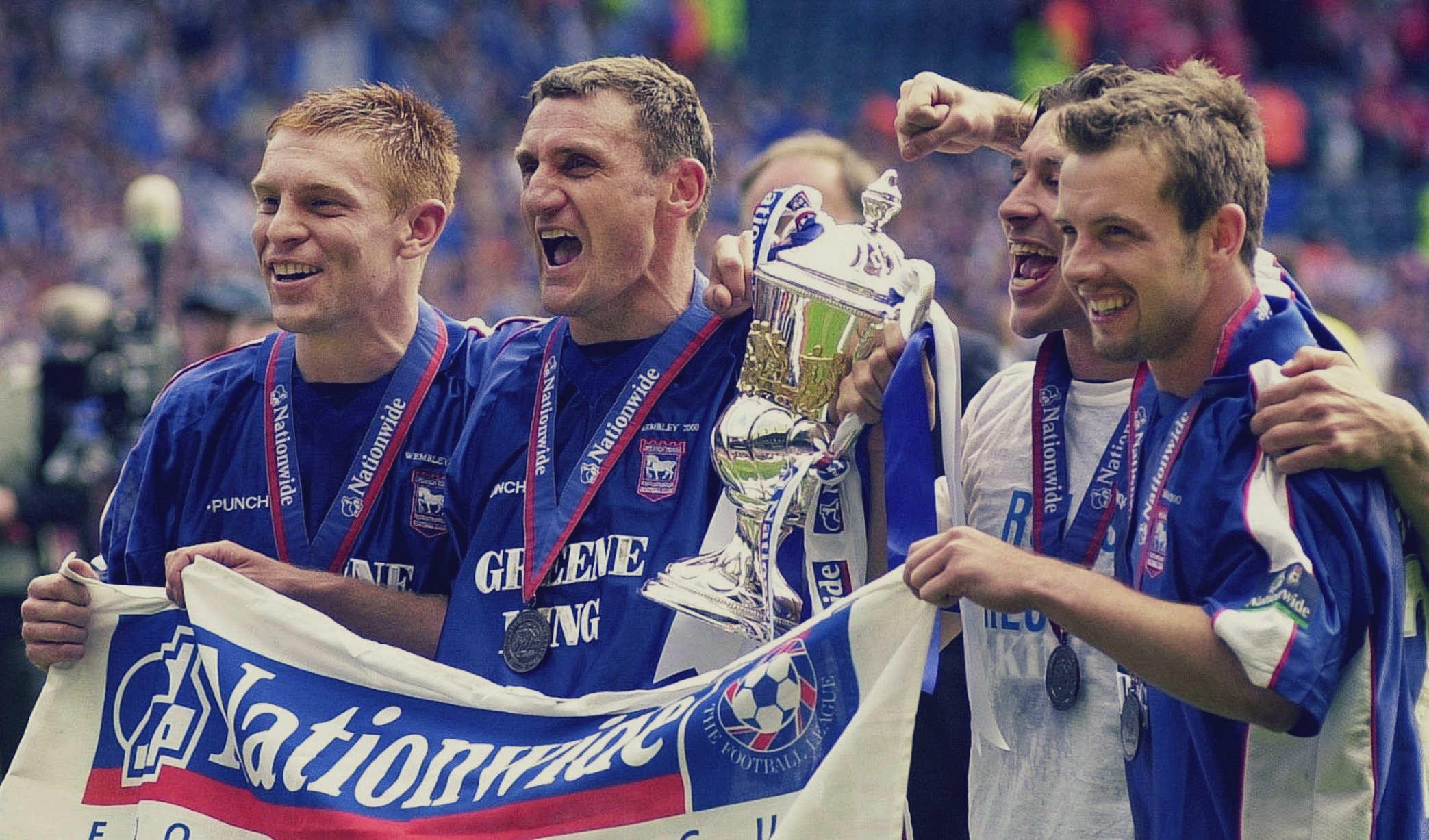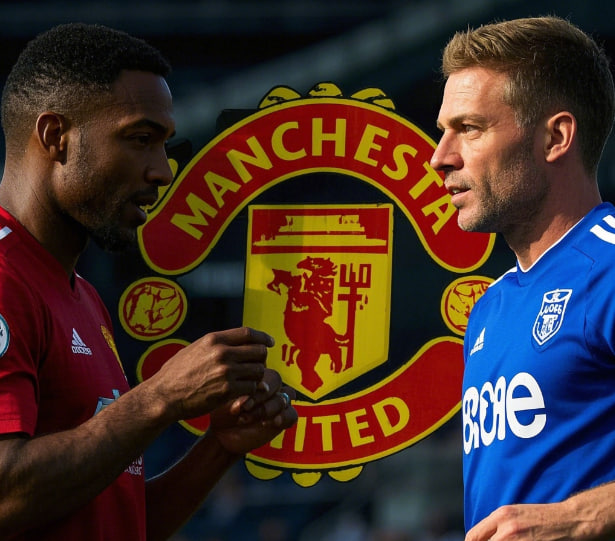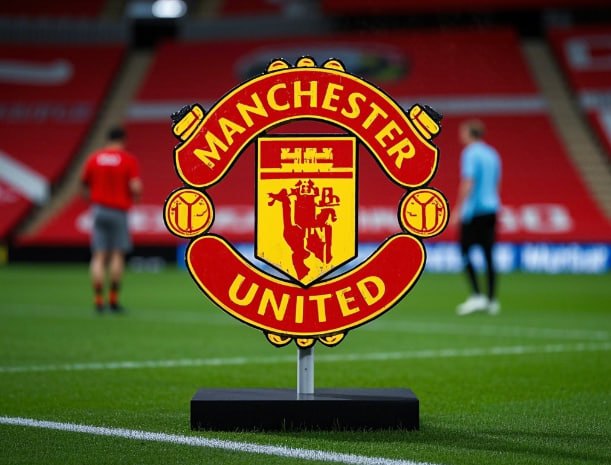When it comes to English football, the first thing that comes to mind is probably the intense and exciting matches of the Premier League. Players compete fiercely on the pitch, and the pace of the game is so fast that it leaves you breathless. However, behind this high-intensity competition lies England’s deep-rooted football culture and long-standing historical traditions.
England’s football league system is highly developed and is often described as a “pyramid structure.” Starting at the top with the Premier League, it then descends through the Championship, League One, League Two, and finally to semi-professional and amateur leagues. This system allows many local teams to work their way up the ranks and eventually become nationally or even internationally renowned clubs.
Among these teams, there is one that stands out in particular—Ipswich Town Football Club. It once enjoyed a period of glory, winning the top league championship and even qualifying for European competitions. However, today, the team is struggling in the third tier of English football, unable to return to its former glory.

From Rugby to Football: The Birth of a Century-Old Club
Ipswich Town Football Club did not start out as a football club. In 1878, it was founded by a group of rugby enthusiasts. Initially, they organized friendly matches locally and went on to win several regional cup titles.
About ten years later, the rugby team merged with another local team called “Ipswich Rugby Club” and officially transitioned into a football club. Although they started late, the team did not slow down.
It wasn’t until 1936 that Ipswich Town officially entered the professional football arena. They performed impressively in the Southern League (the main league in southern England at the time), winning the championship in their first year and finishing third in their second. By 1938, they were finally admitted into the English professional league system, officially becoming a professional football club.
Highlights in the team’s history: Alf Ramsey and the top league championship
What really brought Ipswich to the pinnacle of success was a legendary coach in the 1960s named Alf Ramsey. After taking over the team, he led them to rapid progress, winning the English top league championship in the 1961-62 season.
This title was of immense significance, as Ipswich Town had previously achieved three consecutive promotions as league champions before finally securing the top-flight title—a rare feat in English football history.
It was also around this time that the nickname “Tractor Boys” began to spread. It is said that because the town where Ipswich is located has a strong agricultural atmosphere and their home jerseys are as eye-catching as tractors, fans affectionately called them “Tractor Boys.”
After Robson’s departure: the team falls into a slump
In 1982, following the conclusion of the World Cup in Spain, the English national team appointed a new head coach: Bobby Robson. This coach had previously managed Ipswich Town.
After Robson’s departure, Bobby Ferguson took over as head coach. However, his tenure was not smooth, and the team’s performance continued to decline, eventually leading to their relegation to the second tier of English football in 1986.
This relegation was a significant blow to the team. Ipswich Town, once so glorious, now had to start over from a lower division.
The Lyle Era: The Road to Revival Begins
The turning point came in 1990. That year, John Lyle left Tottenham Hotspur to take over as head coach at Ipswich Town. Under his leadership, the team quickly underwent a transformation.
In the 1991-92 season, Lyle led Ipswich Town to the Championship title (then known as the Second Division), the third second-tier league title in the club’s history.This trophy marked the beginning of Ipswich Town’s revival.
First Steps in the Premier League: Hope and Disappointment
With the establishment of the Premier League in 1992, Ipswich Town faced new challenges. It was the first season of the Premier League, and the entire league was undergoing a major overhaul. As a team from a small town, Ipswich Town was not expected to do well.
The club’s management did not have high expectations, hoping only to stay in the Premier League for one season. But no one expected the team to start so well, raising hopes of a return to European competition.
Unfortunately, the good times did not last long. After the New Year, the team suffered a series of defeats in the FA Cup, which dealt a severe blow to morale. In the end, they finished at the bottom of the Premier League table, narrowly avoiding relegation and finishing in 16th place.
Another shot at the Premier League: the playoff miracle
Over the next few seasons, Ipswich’s performance was inconsistent. In the 1999-2000 season, they made another run at Premier League qualification. In the playoffs, they first defeated Bolton twice, avenging their previous defeat, and then beat Barnsley 4-2 in the final at Wembley to secure promotion to the Premier League.
This time around, the outside world was still not very optimistic about their chances. However, to everyone’s surprise, Ipswich Town performed consistently well throughout the season, spending most of the campaign in the top six and even briefly climbing to third place.
Going into the final round of matches, everyone was hoping they would secure a Champions League spot. Unfortunately, they finished the season in fifth place, earning a Europa League spot instead. Although they failed to qualify for the Champions League, this was still their best performance since 1981.
The good times didn’t last: relegation once again
However, this moment of glory did not last long. In the 2001-02 season, Ipswich finished third from bottom in the Premier League and was relegated once again.
However, there was some good news that year, as their U23 team won the Premier League U23 Championship and, thanks to the Fair Play Award, they participated in European competitions for two consecutive seasons.
Capital injection: a brief revival
At the end of 2007, a British businessman named Marcus Evans became the club’s majority shareholder. He invested heavily, helping the team quickly return to the Premier League and remain at the top of the table for a period of time.
It seemed that Ipswich Town was on its way back to the top.
Frequent coaching changes: Team instability
However, starting from 2009, Ipswich entered a period of frequent managerial changes. After Jim Maguire was sacked, the club appointed former Manchester United captain Roy Keane as head coach, which caused quite a stir at the time.
However, Keane’s tenure was short-lived, and he was sacked by the owner after just one and a half years. Paul Jewell took over, helping the team avoid relegation, but overall performance remained inconsistent.
In 2012, Mick McCarthy was appointed head coach, with a contract running until 2015. Although the team performed adequately during his tenure, they failed to make significant progress.
In 2018, Paul Hurst was appointed as the new head coach, but was sacked just a few months later, with the team already languishing at the bottom of the league. Scottish manager Paul Lambert was then appointed, signing a two-and-a-half-year contract.
Final relegation: drop to League One
In April 2019, following a draw with Birmingham City, Ipswich Town were mathematically relegated to League One (the fourth tier of English football). The club has not returned to the top flight since.
Life outside the Premier League: The harsh reality of lower-tier football
Today, Ipswich Town continues to compete in League One, with little hope of returning to the Premier League. Compared to the big clubs in La Liga, Serie A, and the Bundesliga, which are backed by wealthy owners, the Premier League may seem like a league where every club has money to spend, but in reality, many teams in the lower leagues are struggling.
This is especially true in the aftermath of the pandemic, with many clubs facing severe financial crises. Even teams with strong financial backing, such as Arsenal and Chelsea, have become much more cautious amid uncertainty over their participation in the Champions League.
For mid-table teams like Ipswich Town, rebuilding is no easy task. Without sufficient financial support, it is difficult to sign high-quality players and improve the overall strength of the team.
Conclusion: Hope remains, passion endures
Looking back at Ipswich Town’s century-long history, we see a team that has experienced both glory and decline. They once stood at the pinnacle of European football and later struggled in lower divisions.
Perhaps they are no longer as dazzling as before, but they remain an irreplaceable presence in the hearts of countless fans. No matter what the future holds, we hope more people will pay attention to this team and continue to support them.
Whether you are a fan of any team, please cherish your love for football. This love is what drives us forward.
Wishing everyone all the best!




